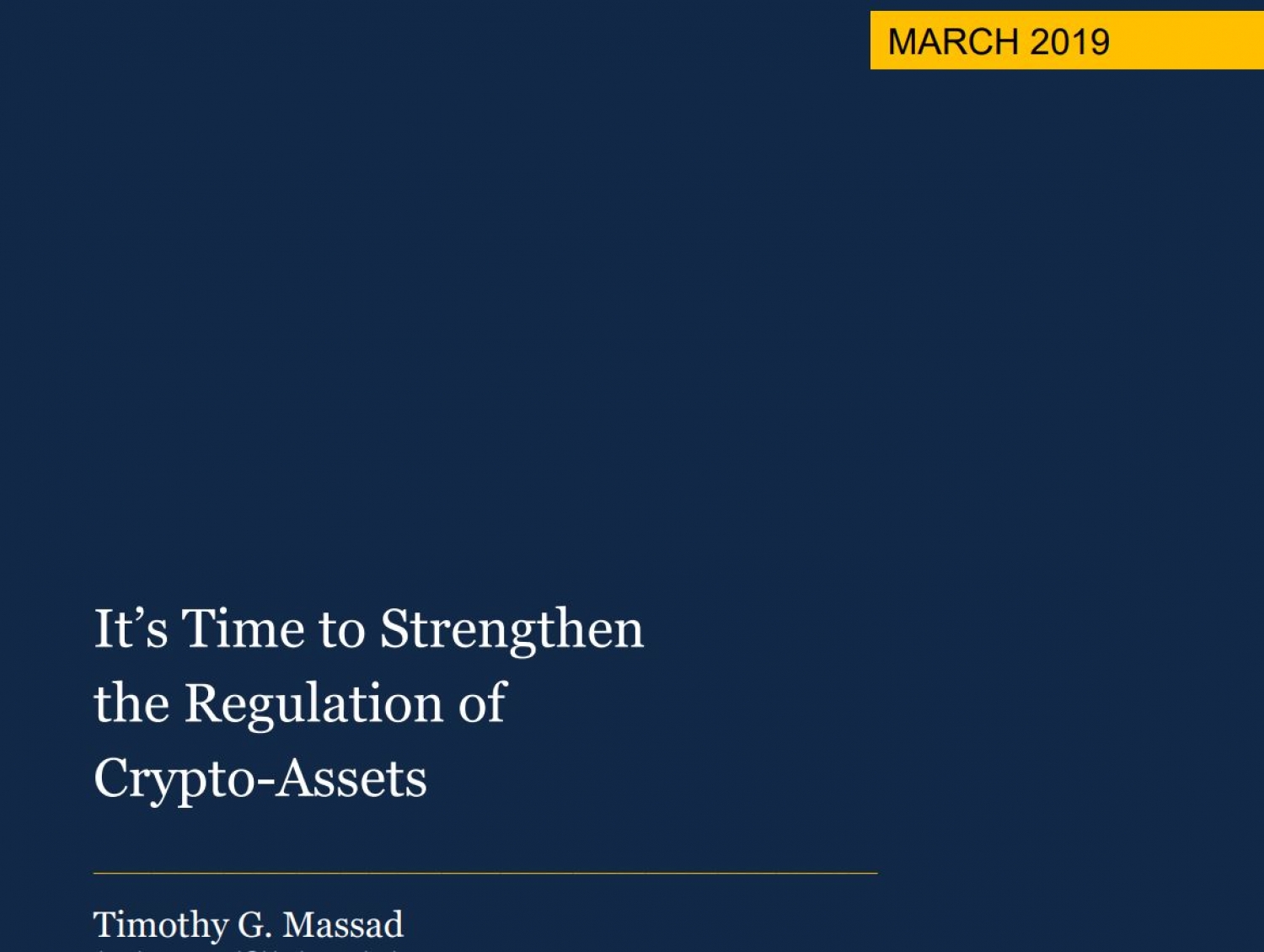There is a gap in the regulation of crypto-assets that Congress needs to fix. The gap is contributing to fraud and weak investor protection in the distribution and trading of crypto-assets. In “It’s time to strengthen the regulation of crypto-assets,” Timothy G. Massad discusses how better regulation will benefit crypto investors, further the development of new technologies, curtail the use of crypto-assets used for illicit payments, and reduce the risk of cyber attacks, which can result in collateral damage elsewhere in our financial system.
Crypto-assets cut across current jurisdictional boundaries and thus fall into gaps between regulatory authorities. While each of the Securities and Exchange Commission (SEC) and the Commodity Futures Trading Commission (CFTC) has some authority over crypto-assets, neither has sufficient jurisdiction, nor do they together.
The hype surrounding Bitcoin and other crypto-assets has contributed to regulatory distraction. Bitcoin’s creators promised it would solve the “trust problem” and reduce our reliance on centralized financial intermediaries. However, it has not reduced our reliance on financial intermediaries or eroded the power of our largest institutions. Indeed, crypto-assets have created new financial intermediaries that are less accountable than the big banks.
New crypto exchanges and trading platforms are not subject to the traditional standards required of securities and derivatives market intermediaries. As a result, investor protection is weak and allegations of fraud and conflicts of interest are frequent.
There are no specific rules to ensure protection of customer assets. One supposed virtue of distributed ledger technology (DLT) is to provide an immutable record of ownership. Yet some platforms do not actually record customer interests on the blockchain and may operate without sufficient assets to cover customer claims. It is like fractional reserve banking without the regulatory framework or insurance that protects depositors. There are no rules regarding how trades are executed.
Crypto exchanges are not required to have systems to prevent fraud and manipulation, nor are there rules to prevent or minimize conflicts of interest. Crypto exchanges can engage in proprietary trading against their customers, something the New York Stock Exchange cannot do. Regulations to minimize operational risk and ensure system safeguards are needed, just as with securities and derivatives intermediaries.
Inadequate regulatory oversight creates broader societal risks with respect to cyber security and illicit payments. Unlike banks and exchanges, crypto intermediaries do not face any specific cyber security requirements, and cyber hacks are common: “Hacking [against crypto institutions] is on the rise because it works.”
Source: The Brookings Institution.


